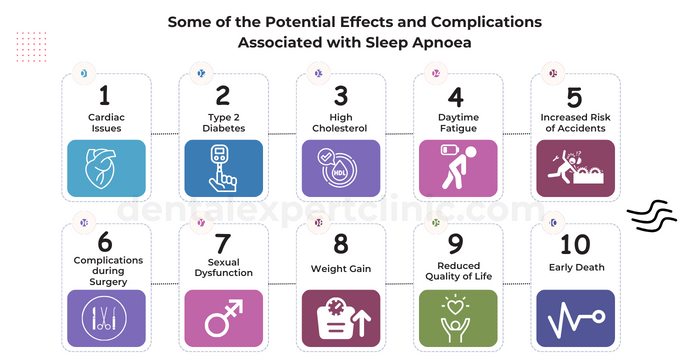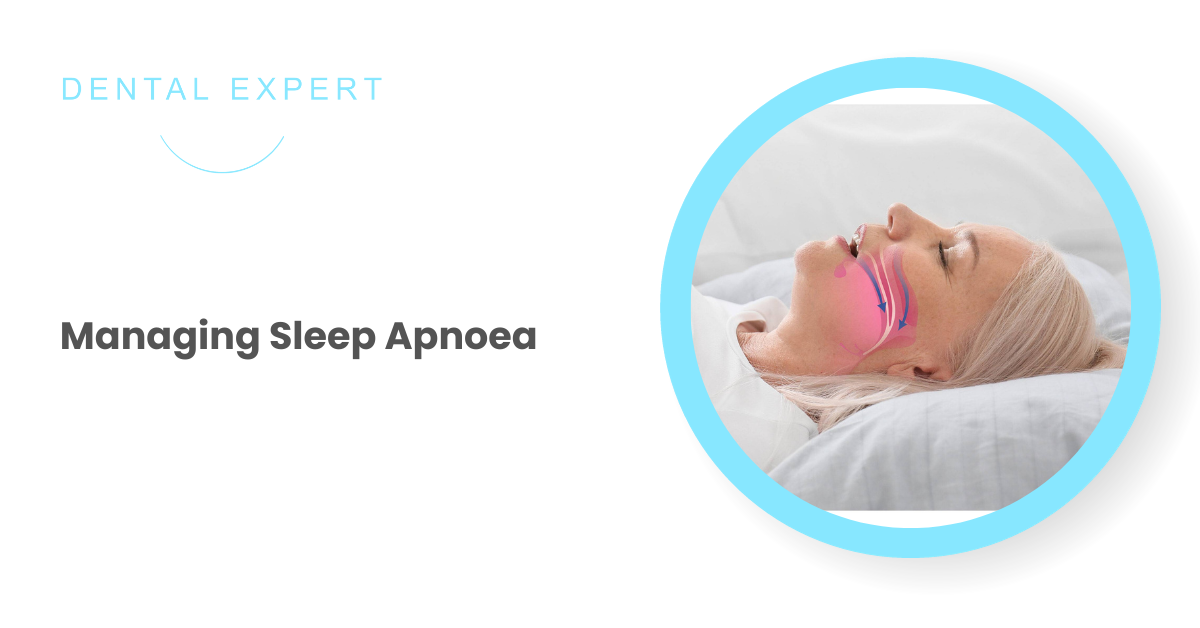Sleep apnoea is a term used for lack of air reaching the lungs during sleep, characterized by gasping for air.
Sleep apnoea is a common, dangerous yet often undiagnosed sleep disorder that can disrupt your sleep and have significant health implications.
Understanding Sleep Apnoea
Sleep apnoea is characterized by repeated interruptions in your breathing during sleep, typically gasping for breath in sleep. It is usually a complicated form of snoring, and like snoring, the person suffering may not be aware of it unless noticed and informed by someone else.
Obstructive Sleep Apnoea (OSA) is the most common type and occurs when the tongue and throat muscles relax excessively whilst asleep, causing airway blockage.
The Causes and Risk Factors
The exact causes of sleep apnoea can vary, but some common risk factors include:
- Excess Weight: Obesity is a significant risk factor, as it can lead to the narrowing of the airway.
- Neck Circumference: People with a thicker neck circumference may have a narrower airway due to fat deposition causing constriction.
- Genetics: A Family History of Sleep Apnoea may play a role in the development of the condition.
- Men: Men and post-menopausal women are more prone to sleep apnoea.
- Aging: Sleep apnoea is more common in older adults.
- Alcohol, Sedatives, or Smoking: These substances can relax the throat muscles and contribute to airway blockage.
- Nasal Congestion: Difficulty breathing through your nose, whether from allergies or anatomical issues, can be a contributing factor.
The Effect of Sleep Apnoea
Sleep apnoea, if left untreated, can have various negative effects on an individual’s overall health and is a leading cause for untimely death.
Some of the potential effects and complications associated with sleep apnoea

- Cardiac Issues
- High Blood Pressure
- Heart attacks
- Stroke
- Type 2 Diabetes
- High Cholesterol
- Daytime Fatigue
- Increased Risk of Accidents
- Complications during Surgery
- Sexual Dysfunction
- Weight Gain
- Reduced Quality of Life
- Early Death
Also Read: Harmful Effects of Sleep Apnoea
Management Strategies for Sleep Apnoea
- Lifestyle Modifications
- Weight Management: If you’re overweight, even modest weight loss can improve your symptoms.
- Positional Therapy: Sleeping on your side instead of your back can help prevent airway obstruction.
- Avoiding Alcohol and Sedatives: Reducing or eliminating alcohol and sedative use before bedtime can help keep your airway open.
- Smoking Cessation: If you smoke, quitting can lead to improvements in sleep apnoea symptoms.
- Continuous Positive Airway Pressure (CPAP): A CPAP machine delivers a continuous stream of air pressure to keep your airway open during sleep.
- Oral Appliances: Dentists can provide oral devices that reposition the lower jaw and tongue to keep the airway open.
- Surgery: In severe cases or when other treatments fail, surgical options may be considered to remove excess tissue, repair anatomical abnormalities, or implant nerve stimulation devices.
- Regular Sleep Schedule and Good Sleep Hygiene: Maintaining a consistent sleep schedule and good sleep hygiene practices can help improve sleep quality.
- Professional Consultation: If you suspect you have sleep apnoea, consult a sleep specialist or a healthcare provider for proper diagnosis and tailored treatment.
Managing sleep apnoea is crucial for both your sleep quality and overall health. By understanding the causes and risk factors, different management strategies can significantly improve your sleep and well-being.
Remember, treatment options may vary based on the severity and type of sleep apnoea, so it’s essential to seek professional advice, from a specialist like Dr. Denzil Albuquerque, to find the most suitable approach for your specific needs.
Dr. Denzil Albuquerque (BDS, MDS, FOFP-USA), is a specialist in Dental Sleep Medicine. He has completed his fellowship in Oro-Facial pain, Headaches and Dental Sleep Medicine from the prestigious Roseman University, USA.
Schedule an appointment now at Dental Expert Clinic or request for an online consultation with Dr. Denzil Albuquerque, for professional advice on management of Sleep Apnoea.

